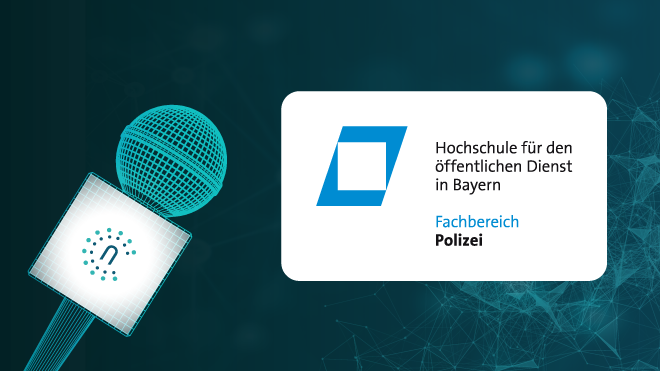
21 Apr Interview with the University of Applied Sciences for Public Affairs in Bavaria
The University of Applied Sciences for Public Affairs in Bavaria (HfoD), are a partner in the NOTIONES project. What is your role within this network of police and intelligence agencies across Europe?
HfoD is participating mainly in the work packages dealing with the interaction between practitioners and other stakeholders, and in participating in the workshops and conferences of the NOTIONES project.
What activities of the NOTIONES project are you currently progressing?
Currently we are progressing to participate in certain working groups and also in the upcoming workshop and conferences. Furthermore, we would like to share knowledge, learning, expertise and information through the NOTIONES network gained from other research and innovation projects we are participating in.
How will the engagement of the University of Applied Sciences for Public Affairs in Bavaria in the NOTIONES project support the work of the University of Applied Sciences for Public Affairs in Bavaria?
The network within the NOTIONES project is of great value and helps the HfoD to broaden its own network and to provide the Bavarian Police also with potential partners and knowledge through the NOTIONES network. Also, it helps to get a good overview of the existing stakeholders and their capacities to support policing.
What are the benefits to the University of Applied Sciences for Public Affairs in Bavaria of participating in European security research and innovation projects?
There is quite a number of benefits for our organisation. Through these projects we are able to learn from others by good practices and we can integrate the results of these projects in our trainings. Furthermore, we can provide the Bavarian Police with the results and outcomes of these projects. Also, we know what is the state of the art and we are able to give input to the future developments and innovation. Another benefit is the creation of networks that are of great importance for modern policing inside Europe as many forms of crime have a transnational aspect.
Are you engaging in other European research and innovation projects?
Currently we are involved in more than 20 European funded projects. Three of them are coordinated by us.
How does the University of Applied Sciences for Public Affairs in Bavaria assess which research and innovation projects to progress?
We plan to continue with our research activities as we see the benefits of the research and innovation projects for our organisation and for policing in general.
How did you become engaged in police research and innovation activity? And what experience do you bring to support the delivery of the NOTIONES project?
Before we became a member of the NOTIONES projects we had already several years of experience with research projects and also with network projects. We started research and innovation projects more than 10 years ago by default when I met a member of the West Yorkshire Police in the UK at a conference in Prague, and he was telling me about security and policing research projects funded by the European Union. We stayed in touch and sometime later we were part of a consortium where West Yorkshire Police was leading a 2-year project called SMART-CV (Social Media Anti-Radicalisation Training for Credible Voices), funded by the European Union’s Internal Security Fund for Police. That is how our research and innovation project story started.
What advice would you give to other law enforcement agencies seeking to engage in European security research and innovation? And what are the key lessons you have learned in delivering police research and innovation projects?
Law enforcement agencies should not only see research and innovation as additional work, but as a chance to gain information and to stay on top of technological and societal results of this research and innovation activities. They might also give views and insights that without these projects law enforcement might not think of. Furthermore, it gives a great opportunity to create tailor-made networks fitting the needs of the individual law enforcement agency.
Contact details and online links:
Website: www.fhvr-polizei.bayern.de

Dr. rer. pol. Holger Nitsch studied at the Ludwig Maximilian University in Munich political science, economy and psychology. He specialised in International Relations and Terrorism. He was working at the Munich Airport in the field of prevention of illegal migration and counterterrorism. He had training and management duties and was involved in antiterrorism measures for aircrafts. He currently is working as the head of the social science department for the University of Applied Sciences for Public Affairs in Bavaria – Department for Policing. Also, he is the director of the internal research institute CEPOLIS. He is responsible for the management of international projects, public relations and international relations / foreign contacts. He has several publications and is gives presentations and lectures on radicalisation and terrorism for several organisations. Furthermore, he is the coordinator of the EU funded H2020 project PROPHETs, the Horizon Europe funded projects FERMI and POLIIICE and of the ISFP funded projects DroneWISE and CYBERSPACE. The focus of his research is on migration, integration, terrorism, radicalization, and countering violent extremism. This involves the role of social media as well. Another focus is research on organized crime and cybercrime and on disinformation and hate crime.. He also is a member of the CENTRIC advisory board and the Foreign Affairs Association. He has also been awarded the position of a honourable professor at the state University of Odesa.





